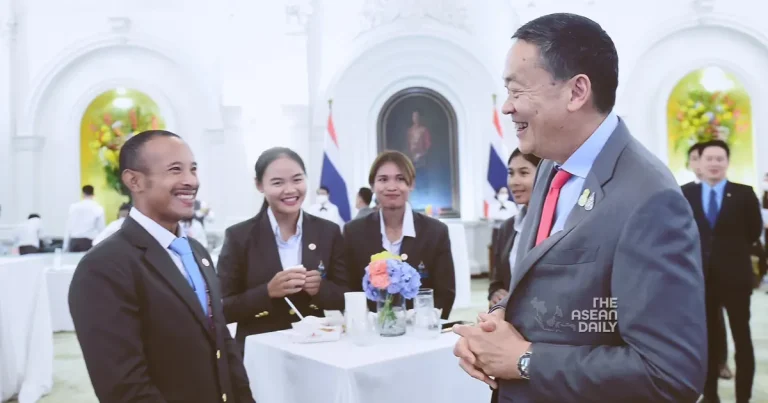10-11-2023 (BANGKOK) The government is set to unveil the details of its 10,000-baht digital money handout scheme on Friday, even as critics remain vocal in their opposition, arguing that the plan could have negative consequences for the economy.
Prime Minister Srettha Thavisin announced that he would host a press conference to clarify the scheme’s specifics at 2 pm on Friday. He also mentioned that none of the coalition partners had raised concerns regarding the digital wallet policy proposed by the Pheu Thai Party.
When asked about potential positive developments during the upcoming press conference, the prime minister stated, “I will explain everything myself.”
In the meantime, critics scrutinized the scheme during a seminar titled “The Digital Money Handout: A Disaster or Future for the Country?” held on Thursday.
Somchai Srisutthiyakorn, a former election commissioner, expressed concerns about the government’s push for the digital money policy, highlighting various challenges. “It has instructed state agencies to assess budget spending for the 2024 fiscal year to fund the handout,” Mr. Somchai explained. “The government did not thoroughly study laws related to financial discipline. Even the Government Savings Bank is unable to provide funds to support the scheme.”
He speculated that, during the press conference, the government might announce a postponement of the handout, likely until May. The scheme’s initial launch date had been set for February 1.
“It’s possible that the 10,000-baht giveaway could be distributed in four installments of 2,500 baht each, rather than a single payment. If that happens, it may no longer provide the intended economic boost,” Mr. Somchai warned.
Thirachai Phuvanatnaranubala, a former finance minister, cautioned that any handout scheme driven by political motives could set a dangerous precedent for future elections and potentially harm the country. He noted that the State Fiscal and Financial Disciplines Act prohibits projects designed for political gain that could damage the nation.
Previously, a sub-committee overseeing the digital wallet project’s implementation had made recommendations, suggesting that the handout be limited to the 15–16 million people with state welfare cards, at an estimated cost of 150–160 billion baht to the state.




